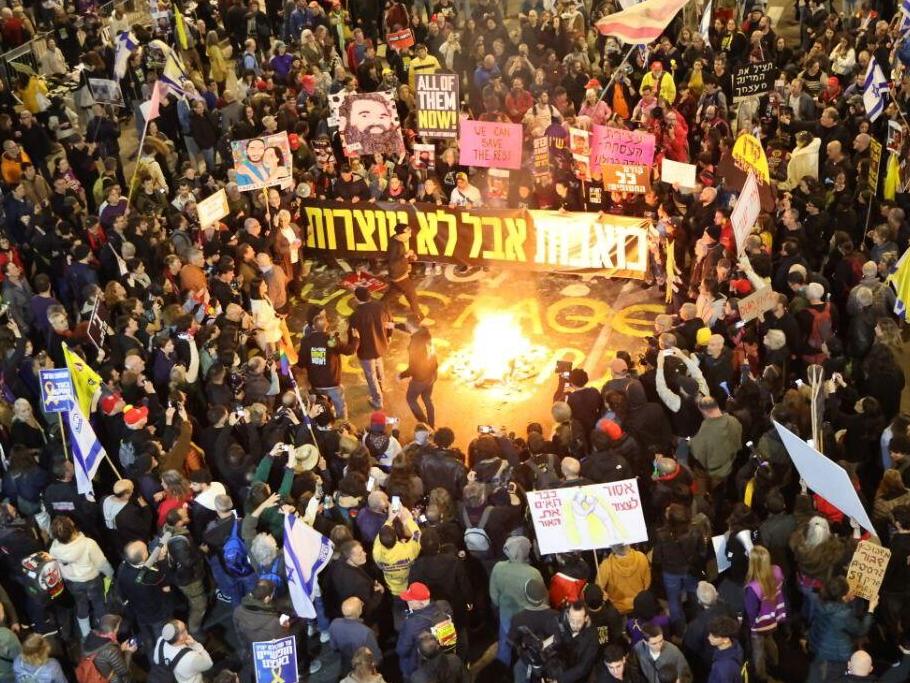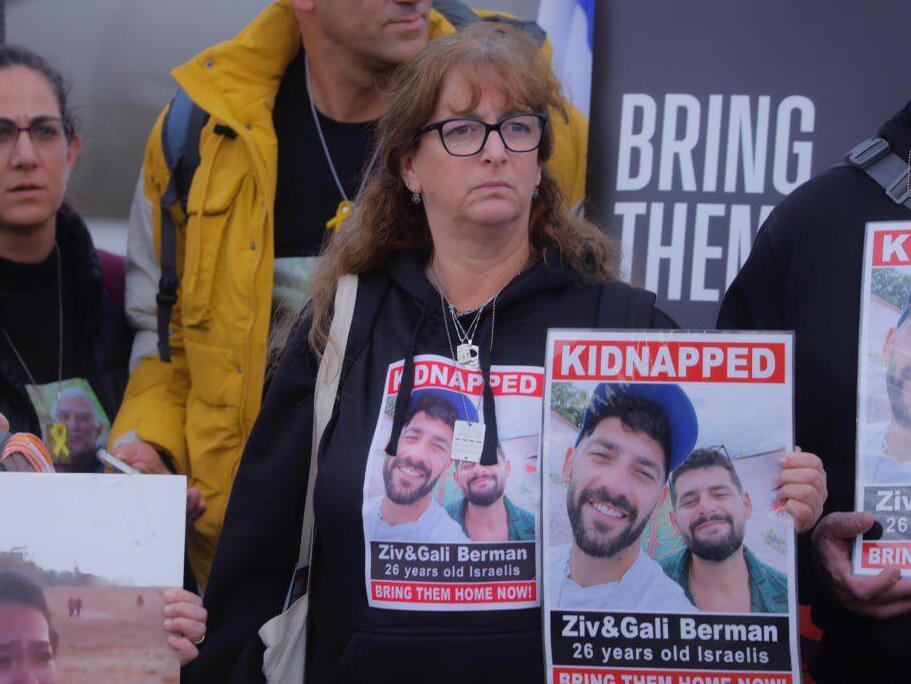Getting your Trinity Audio player ready...
Hours after the first phase of the hostage deal expired, families of captives expressed growing concerns for their loved ones, fearing that stalled negotiations and escalating tensions could put them at greater risk. Their fears were amplified by Hamas’ refusal to accept a U.S.-backed framework for extending the cease-fire in exchange for the immediate release of half of the remaining hostages.
The situation became even more uncertain after Israel, with U.S. backing, announced it was halting humanitarian aid to Gaza. According to Al Jazeera, the decision followed an Israeli demand for Hamas to release five living hostages and the bodies of 10 others in exchange for increased humanitarian assistance—an offer the group rejected.
The announcement came as a shock to many families, who fear their loved ones could be harmed by the breakdown in negotiations.
'Everything is fragile, frightening and dangerous'
For Merav Gilboa Dalal, whose son Guy Dalal remains in captivity, the uncertainty is overwhelming. She learned about the aid suspension during a live interview with Israeli media. "I need to process what you just told me," she said. "Everything is so fragile, frightening, and dangerous. This is very difficult to hear."
Her anguish was compounded by a video Hamas released a week earlier, showing her son alongside another hostage, Evyatar David, watching one of the earlier hostage releases. "The longing for Guy, especially after that horrifying video, is unbearable," she said. "We hold onto hope. We know Guy will come home—that belief is what carries us through."
Dalal described her son as "a symbol of someone abducted from a festival of peace and love" and accused Hamas of psychological torment. "In the video, they made it seem like they were about to be released, only to take them back underground. It was meant to break them mentally. But it’s moving to see the bond formed among the captives—they are truly looking out for one another."
The uncertainty has also shaken Maccabit Meir, the aunt of kidnapped brothers Gali and Ziv Berman. "We are in a bottomless pit. Everything is volatile, fragile. In a split second, this nightmare could take an irreversible turn for Gali, Ziv, and all the others left behind," she said.
Meir referenced testimony from former hostage Eli Sharabi, who described his captivity in a recent television interview. "His courage, his superhuman strength—he survived and returned from hell. His testimony must be aired constantly, in the Knesset, in the media. This is the reality for everyone still held captive."
Get the Ynetnews app on your smartphone: Google Play: https://bit.ly/4eJ37pE | Apple App Store: https://bit.ly/3ZL7iNv
She also voiced concerns about Israel’s priorities. "I fear that the hostages are no longer the government’s top priority. I want to believe that phase two of the deal will move forward. I want to believe negotiations will continue. I can’t even fathom a return to fighting now—it would seal their fate."
Red Cross defends role amid criticism
The International Committee of the Red Cross (ICRC), which has played a key role in facilitating hostage releases, has faced increasing scrutiny over its actions.
"We are a neutral and non-political organization. We interpret events based on international law," said Gilad Grossman, the Red Cross' spokesperson in Israel. "Our mission is to assist civilians in conflict zones."
Addressing Israel’s decision to halt humanitarian aid, Grossman said, "Humanitarian aid saves lives. We have repeatedly spoken about the urgent need for it. While we are not in a position to determine whether this constitutes deliberate starvation, there is a humanitarian crisis in Gaza."
One of the primary criticisms against the ICRC has been its failure to secure access to the hostages, who are reportedly being held in dire conditions. "We have not been able to reach the hostages in Gaza," Grossman admitted. "We have consistently declared that they must be released unconditionally. The Red Cross has been trying for more than 500 days to gain access to them, to allow them contact with their families and to provide medical care. We do not conduct these efforts publicly. But the reality is clear—we have not succeeded."
Grossman also rejected accusations that the Red Cross has equated the Israeli hostages with Palestinian prisoners held in Israeli jails. "At no point did we attempt to create symmetry between the two sides," he said. "Those who are released have rights, and their dignity must be respected, but we never equated the two situations."
Regarding Alon Ahel, an Israeli hostage reportedly suffering from a severe eye injury, Grossman was unequivocal. "He should not be there at all. His detention is a violation of international law. We continue to work to gain access to him and the other hostages."
Since the war began, Grossman said, "more than 140 individuals have been released through our facilitation. This is humanitarian work at the most extreme level, and we will continue until the last hostage is home."





